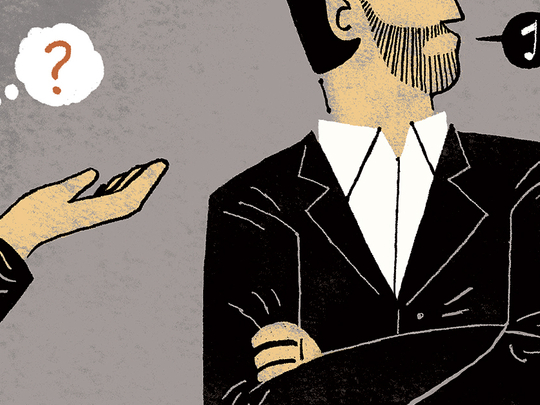
The title of this column is attributed to a popular hadith (saying) by the Prophet Mohammad(PBUH). Unfortunately, some people choose not to pay heed to such a dictum. Honestly that leaves me often perplexed that in the land that gave birth to Islam and where so much emphasis is placed on religious beliefs and traditions, some people continue to skirt their Islamic beliefs, particularly when it comes to compensating their workers for their labour and giving them their dues.
Reports of such exploitation over the years in Saudi Arabia could fill volumes in an encyclopedia, and despite being publicised in much of our press, it is unfortunate that this malicious practice seems to show no sign of fading. While there are laws to protect against such abuse, exploiters somehow manage to escape justice and the cycle of injustice continues as they keep recruiting and abusing the rights of their employees.
Just recently a story broke out on the harrowing ordeal of an Indian housemaid who had not been paid her monthly wages by her employer for the past six years. The lady, who hails from the Indian state of Kerala, was sent to her present employer six years ago as a domestic helper through a recruiting office back in her home country. Her contract stipulated that she be paid 900 Saudi riyals (Dh880) monthly.
Following her arrival, she was taken aback when she was told by her Saudi sponsor that her salary was in fact 700 riyals, and that was his arrangement with the recruitment company that had sent her.
With no other choice except to continue, she began her household duties. Her employer paid her during the first four months, but then all payments stopped while she continued working. He kept making one excuse after another, and she had no alternative to collecting her dues but to keep holding on and working in the hope that eventually she would get paid.
Unrewarded slave
This went on for years, and her employer virtually held her hostage in his residence to serve his family while not paying her salary. She was not allowed to contact anyone on the outside and thus had to bear the indignity of playing the role of an unrewarded slave.
Fate came to her rescue a couple of months ago when a Keralite technician came over to the residence to repair something. She quickly briefed him on her misery and provided him with contact details of her family back home.
The family who soon came to know of her fate began pestering the Indian Embassy in Riyadh on her whereabouts and status. She said that “with the help of the Riyadh police, the Indian Embassy succeeded in tracing my whereabouts. The employer was contacted and embassy officials along with the police reached his place to solve the matter”.
The employer then had to sign an undertaking to pay 33,000 riyals in back wages and make the arrangements for her airfare and final exit from the kingdom.
He asked for a grace period of three weeks to come up with the money but according to embassy officials he has yet to make good on his word.
Fortunately, the housemaid was taken to the welfare shelter the embassy provides for abused domestic helpers. She waits in anticipation for her rightful dues and reunion with her family. However, that will never compensate for the grief, the humiliation and the time away from her children while she had come here to earn an honest living.
It was fortunate that in her case her family back home took a stand. And although all is not settled yet, she will eventually get her dues. But what about the many others in similar situations who have no family to tell their plea, or no embassy officials to pursue their case?
We cannot remain silent and in denial in the face of such human rights violations of our guest workers by some unscrupulous employers.
These workers have left their countries with great hardship and sacrifices to come here and eke out an honest living. Sometimes there are families back home whose survival depends on the wages of the guest worker. And while most of them are being compensated fairly, there are many others who have been denied their dues and today live in fear, hunger and uncertainty far away from their homes.
Wages are an earned right, not a charity. In a well-documented hadith, the Prophet (PBUH) had stated, “Pay the worker his dues before his sweat has dried up”.
It addresses the rightful dues of those in employment of others, and emphasises the prompt disbursement of all dues to the worker upon completion of his or her duties. How difficult is it to understand that, and just how many of us who claim to be good Muslims adhere to such edicts?
Tariq A. Al Maeena is a Saudi socio-political commentator. He lives in Jeddah, Saudi Arabia.









